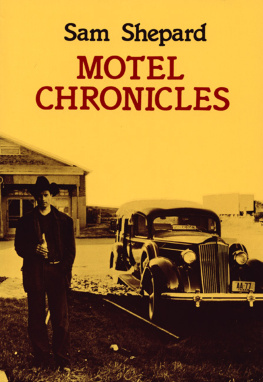Stanford University Press
Stanford, California
2012 by the Board of Trustees of the Leland Stanford Junior University.
All rights reserved.
No part of this book may be reproduced or transmitted in any form or by any means, electronic or mechanical, including photocopying and recording, or in any information storage or retrieval system without the prior written permission of Stanford University Press.
Printed in the United States of America on acid-free, archival-quality paper.
Library of Congress Cataloging-in-Publication Data
Dhingra, Pawan, author.
Life behind the lobby : Indian American motel owners and the American dream / Pawan Dhingra.
pages cm.
Includes bibliographical references and index.
ISBN 978-0-8047-7882-4 (cloth : alk. paper) ISBN 978-0-8047-7883-1 (pbk. : alk. paper) ISBN 978-0-8047-8202-9 (e-book)
1. East Indian American businesspeople. 2. Motels United States. 3. East Indian Americans Social conditions. 4. East Indian Americans Economic conditions. I. Title.
HD2358.5.U6D45 2012
647.94089'91411073 dc23 2011039933
Typeset by Westchester Book Group in 10/14 Minion.
Life Behind the Lobby
Indian American Motel Owners and the American Dream
Pawan Dhingra
Stanford University Press
Stanford, California
Contents
Ac knowledgments
Although I had no personal connection to motels or hotels and did not know any owners before I started researching this project, I have become highly sensitive to the industrys ups and downs and, of course, to the lives of those in it. This is despite the fact that I still have no formal relationship to the industry. My now emotional response to hearing reports of someones RevPAR (revenue per room based on the number of rooms available) and of motel occupancy tax plans stems from my respect for the owners and families I have met in the course of this research. Practically all were gracious with their time, information, and (no pun intended) hospitality. My deeply sincere appreciation goes to the men and women I met, including owners, family members, employees, vendors, Asian American Hotel Owners Association staff, community leaders, and everyone else whose insights have informed this book.
This book is not meant to represent the lives of all motel owners, nor of all Indian American owners or even those from whom it draws. Instead, it takes from the information I learned and constructs an argument that speaks to the academic and lay audiences I know best. This information stemmed from the questions I asked and the observations I made over the past several years. The questions were shaped by my interest in the role(s), if any, that race, neoliberal ideology, post colonialism, gender, class, and other factors have played in the emergence of a group that appears to embody the American dream. Where are we now as a country in our relationship with these forms of oppression? Such an accomplished minority group can offer novel insights into these topics. My academic interest expanded over the course of the project, but I never lost sight of what motivated me in the first place. This means some topics are not addressed that otherwise could have been, but this is the nature of any writing. Because this is the first full-length book on Indian American motel owners, expectations of all that could be discussed will not be met.
I also want to thank colleagues who offered guidance on this project. These include academics researching Asian Americans and immigration and racial inequality, of whom I only name very few: Vivek Bald, Jigna Desai, Joanna Dreby, Steven Gold, Monisha Das Gupta, Philip Kasinitz, Nazli Kibria, Nadia Kim, Prema Kurien, Pyong Gap Min, Dina Okamoto, Bandana Purkayastha, Junaid Rana, Sharmila Rudrappa, Jiannbin Shiao, Jane Yamashiro, and Min Zhou. Colleagues at Oberlin College provided both intellectual and social support. These include Rick Baldoz, Michael Fisher, Daphne John, Shelley Lee, Pablo Mitchell, Gina Perez, Meredith Raimondo, and other members of the sociology department and the comparative American studies program. Many studentstoo many to mentionalso assisted in this project. Some of these excellent former undergraduates include Tuyet Ngo, Munib Raad, and James Tompsett.
I am very pleased to be publishing again with Kate Wahl, who has been a true model of professionalism: supportive and straightforward. Luckily for the readers, two anonymous reviewers gave critical insights into a first version of the text. They set a high bar that I hope to match in my future reviews.
On a personal level, I would like to thank my family for putting up with my curt answers to questions of how the book was proceeding. I am indebted to my parents and my mother-in-law, whose own immigrant stories have yet to be told. My brother, siblings-in-law, and nephews and niece have been joys to visit. My own children are my main source of inspiration to finish any project so that I can spend more time with them.
And to my wife: my source of advice, support, and calm. Without whom this project would be just half-started interviews, a reading list, and a weak opening paragraph.
Introduction
You are part of this economy, integral to the health of the U.S., accounting for $40 billion in commerce each year.... It wont be long before you are known as people and families who are deeply, passionately, knowledgeably, involved in making our beloved United States of America what it should be.
When former vice president al Gore spoke these words at a 2002 convention of motel owners, he was not the firstnor would he be the lasthigh-profile politician to do so. Indeed, these leading Indian American motel owners have accrued enough wealth and resources to command attention and bring powerful, wealthy, white men in as speakers.
Indian American motel owners appear as the American dream incarnateself-employed, self-sufficient, boot-strapping immigrants who have become successful without government intervention. Regardless of their political ideology, these keynote speakers invoke the model minority stereotype to describe Indian American motel owners, praising them as a group that has overcome obstacles on the road to great achievements and implying that racial or cultural inequality is no longer an issue. In his address to the 2004 Asian American Hotel Owners Association (AAHOA) convention attendees, former Speaker of the House Newt Gingrich said: I am proud to be here with you. You are what the American dream is all about.... You will make America a better country for us and our kids and grandkids.
Nor is it just politicians who have embraced this narrative. Popular media have made similar points. For instance, a 2004 New York Times story complimented the growth of motels owned by first- and second-generation (that is, immigrant parents and their U.S.-born children) Patels by profiling a typical owner, saying:
Morning and night, Mr. Patel, an immigrant from the Indian state of Gujarat, manned the front desk and did repairs on a 60-room Econo Lodge in Bordentown, New Jersey, while his wife, Indu, and two children hauled suitcases, made up beds, and vacuumed rooms. And the work paid off. At age 57, Mr. Patel owns not only the Econo Lodge but, with relatives, four other hotels.... At hotel schools like those at Cornell University, New York University, and San Diego State University, as well as more general business schools, the children are studying how to manage chains of hotels, work in corporate offices of name-brand franchisors, and acquire more upscale properties like Marriott and Hilton. Call them the Cornell hotel Patels.
Similarly, a






